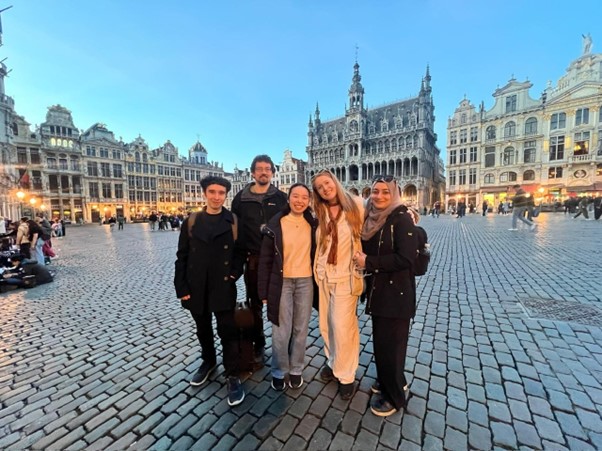Four undergraduate law students at Kent Law School reached the oral rounds of the International Migration and Refugee Law Moot Court Competition, held at the University of Antwerp (Belgium) in March 2024. They were the only team from the UK selected from the written rounds to join 9 other teams from universities around the world, including the eventual finalists from the Netherlands and Singapore.
This international competition aims to bring together students interested in international migration and asylum law from around the globe. It provides them with an ideal opportunity to sharpen their analytical, drafting and pleading skills, as well as to broaden their network with colleagues from other universities and judges who are experts in the field.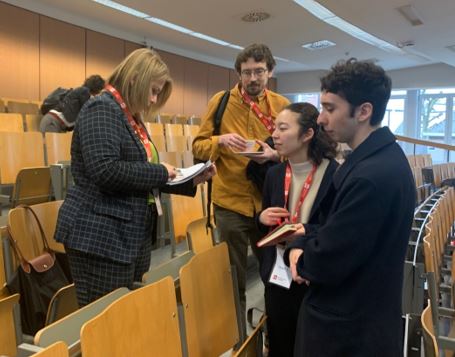
The Kent team consisted of Canadian final year law students Sarah Smith and Yaman Midani, Japanese final year law student Yuyu Hosokawa and second year home student Oliver Contreras. They were trained by Dr Richard Warren, Lecturer and Immigration Law Adviser, Kent Law Clinic.
‘As students with a keen interest in immigration and asylum law’, explains Sarah, ‘we regularly attended Richard Warren’s immigration meetings at the Kent Law Clinic and when he offered an opportunity to sign up for a moot, we jumped at it. We spent the year having trial moots, and written submissions, where it finally whittled down to us 4. Over the spring and autumn we would attend workshops with Richard and Darren Weir and in December we submitted our written submissions to the competition. We were pleased to advance to the oral rounds in Antwerp.‘
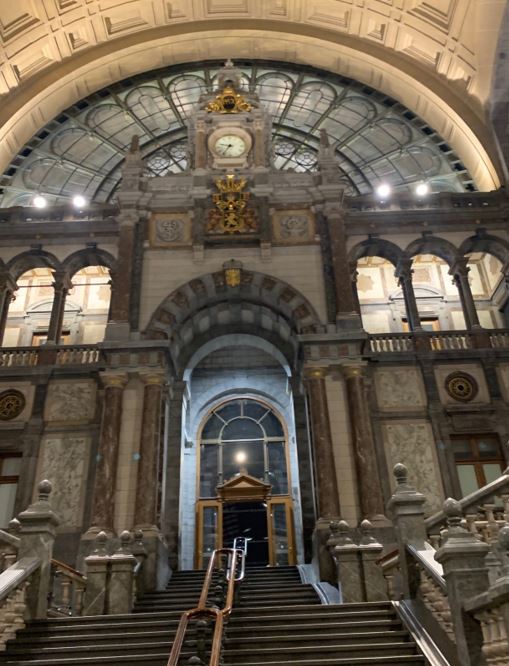 Each team had to plead a fictitious case between a State and a migrant before a judicial body. The case concerned a young Afghan woman, who applied for asylum in the Grand Duchy of Taurasia, a fictitious country, after the Taliban takeover in Afghanistan.
Each team had to plead a fictitious case between a State and a migrant before a judicial body. The case concerned a young Afghan woman, who applied for asylum in the Grand Duchy of Taurasia, a fictitious country, after the Taliban takeover in Afghanistan.
Richard Warren explains that ‘the team worked very hard to learn international refugee law, with most of them not having studied the subject as part of their law degree. It was great to see them develop their confidence in such a short space of time. The final focused on arguments for and against removal to a third country with echoes of the UK’s Rwanda scheme, and so the issues that the teams were grappling with were highly relevant to current events.’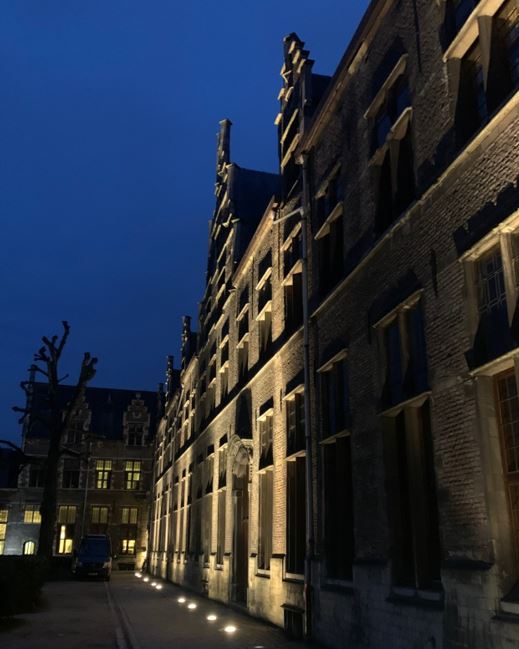
Speaking about the experience, Sarah adds that ‘on arrival in Antwerp, we were warmly greeted by the University of Antwerp organizing committee. We met other students and prepared nervously. When the time came to moot, we stood up and did our practised oral submissions. That evening we watched the semi-finals and had a fancy dinner at the university (built in 1516!). We received very positive feedback – we had confident, almost excellent presentations, and above average legal argumentation and preparation. It was an honour to receive individualized feedback from Immigration and asylum judges from around the world.
We also got to watch a judges’ panel where they discussed the issues in immigration and asylum law, and see the finalists moot.
The highlight of the experience was undoubtedly meeting bright students and experienced judges from around the world, including India, Singapore, the Netherlands, Estonia… and exploring Antwerp and Brussels. That was worth more than any trophy!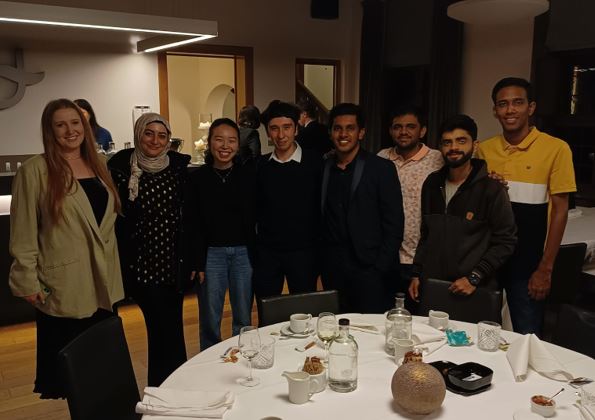
After a successful first moot, and now with confidence to grow and continue, I would say it was an amazing experience. I encourage all students considering immigration law, or mooting, or a career at the bar, or simply looking for experience in public speaking and an opportunity to meet students from all over the world, to try any opportunity the University of Kent offers. You won’t regret it!’

